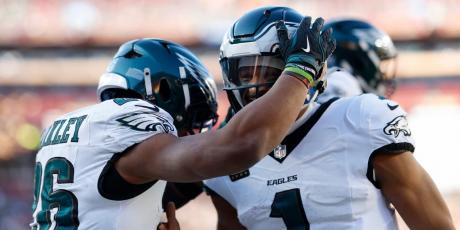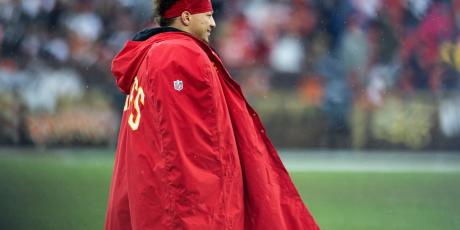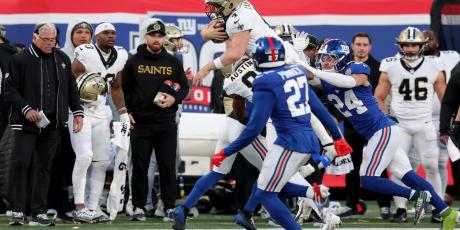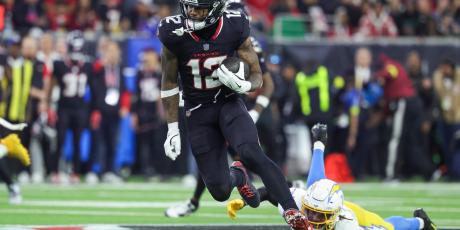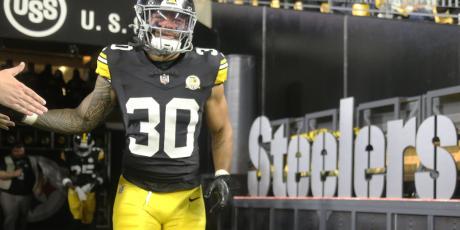The Training Room: Week 7 Injury Updates

After a quiet week in the training room last week, treatment tables are at a premium after many players were knocked out of games and weren't able to return in Week 6. With bye weeks influencing how managers figure out a game plan, knowing the status of your injured players becomes that much more important. Let's look into some of the key injuries that happened this past weekend and how they affect lineups heading into Week 7.
Jimmy Graham
Foot/Ankle Injury - No further information was given on the specifics of his injury.
Graham stepped wrong when trying to separate from a defender late in the 2nd half of the game and pulled up limping. He came out of the game briefly, but later returned. He underwent an MRI today but the results have not been revealed.
Bottom Line - Based on the way Graham pulled up after he took the wrong step, it looked like more of an achilles issue than anything else based on how he was favoring it. The fact that he was able to return to the game is promising in addition to the Saints having a Week 7 bye. Graham should be fine for Week 8 against the Bills, but make sure he progresses through practice before making any final decisions on him.
Randall Cobb
Broken Fibula - The fibula is one of the bones in the lower leg. Fractures to the fibula can cause immediate pain and swelling, which can lead to further complications if not treated immediately.
Cobb took a shot to the knee from Ravens safety Matt Elam and was in severe pain as soon as it occurred. He came out of the game and was seen on crutches after returning from the locker room. X-rays today revealed a fractured fibula.
Bottom Line - It's brutal news for the Packers as they lose one of their most dynamic receivers for an extended amount of time. The fibula isn't the main load bearing bone in the lower leg so he should recover without too much of a setback, but fractures require at least 4 weeks for the bone to heal. If Cobb doesn't have any complications with his fracture, I would expect him to be ready in about 6 weeks as he will need to get his legs back under him after the fracture has healed.
James Jones
Sprained PCL - The posterior cruciate ligament (PCL) is the other main ligament in the knee, along with the ACL, that helps stabilize the knee. The PCL prevents the lower leg from moving backwards on the femur and resists rotational or twisting motions. PCL injuries usually occur with direct trauma to the lower leg that causes the leg to hyperextend, or from falling on the knee when it is fully bent.
Jones left yesterday's game against the Ravens early in the game and did not return. He was seen limping along the sidelines during the rest of the game with a brace on. Reports are saying that he suffered a PCL sprain and is questionable for this Sunday's game against the Browns.
Bottom Line - Sprained PCL's are nothing to take lightly, so I have a tough time agreeing with the notion that Jones could be ready for this week's game. No timetable was given when it came to discussing the severity of his PCL sprain, but I would expect Jones to miss at least one game if not more to get his knee right.
Thaddeus Lewis
Sprained foot - The main role of the foot is to help dissipate forces as you put weight through it. There are many ligaments that help stabilize the bones of the foot. With repetitive load to those ligaments, the ligaments can break down and cause pain, which makes it difficult to push off the foot.
Lewis was seen in a boot shortly after the Bills overtime loss against the Bengals yesterday. MRI results were negative for any tears or extensive damage and Lewis is considered day to day. Coach Marrone is confident that Lewis will be able to play this upcoming Sunday against the Dolphins
Bottom Line - Even though the Bills feel Lewis will be ready for Sunday, the signing of Matt Flynn might suggest otherwise. Consider Lewis day to day for now and check to see if he's able to put in any practice time as the week progresses. He doesn't have a great matchup against the Dolphins, but many thought he was going to flop against the Bengals as well.
Demarco Murray
Sprained MCL - The medial collateral ligament (MCL) is the main ligament on the inside part of the knee that helps with stabilizing the knee. Ligament sprains occur to this region when an external force is applied from the outside of the knee, which causes the knee to buckle in towards the other knee.
Murray left in the first half against the Redskins and did not return. He was diagnosed with a sprained MCL and is unlikely to play in this week's game against the Eagles.
Bottom Line - it sounds like Murray's MCL sprain is a grade 1 which could take anywhere from 2-4 weeks to heal barring any setbacks. When he does return, Murray might need to wear a brace to protect the ligament initially, which could lead to some hesitation to plant and cut off the leg. (Fred Jackson dealt with the same injury last year)
Matt Schaub
Ankle Sprain - The ligaments/tendons/muscles on either the outside or inside of the ankle get overstretched which causes pain/swelling.
Schaub was tackled awkwardly and had his lower leg rolled up under him. He left the game in the 3rd quarter and did not return.
Bottom Line - Schaub's injury looked pretty significant which makes it seem like a multi-week injury. I wouldn't be surprised if they update Schaub's status later in the week and reveal a possible high ankle sprain which would really limit his ability to come back quickly. With the Texans on bye in Week 8, there's a good chance Schaub won't return until at the earliest Week 9.
Cecil Shorts
AC Sprain - Your acromioclavicular (AC) joint is the joint that connects your collarbone to your shoulder blade. It's considered the tip of your shoulder and is an important area to help stabilize the shoulder when raising the arm in different directions, especially. AC sprains are usually referred to as separated shoulders and any trauma to that joint causes laxity of the ligaments around that area.
Shorts was hurt on the Jaguars first possession of the game and did not return. He was seen in a sling after the game.
Bottom Line - AC sprains are pretty painful and can contribute to instability in the shoulder if not treated promptly. The main ligaments that are needed to help stablize the top of the shoulder are compromised, so proper function of the muscles around the shoulder become that much more important. There was no update to how severe his AC sprain was so it is tough to determine how long Shorts could be out. I would say he misses at least 1 game with the potential that he misses 2-3 games depending on how the shoulder responds to rehab.

